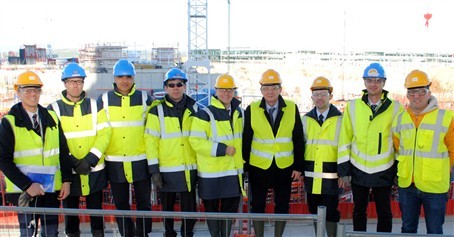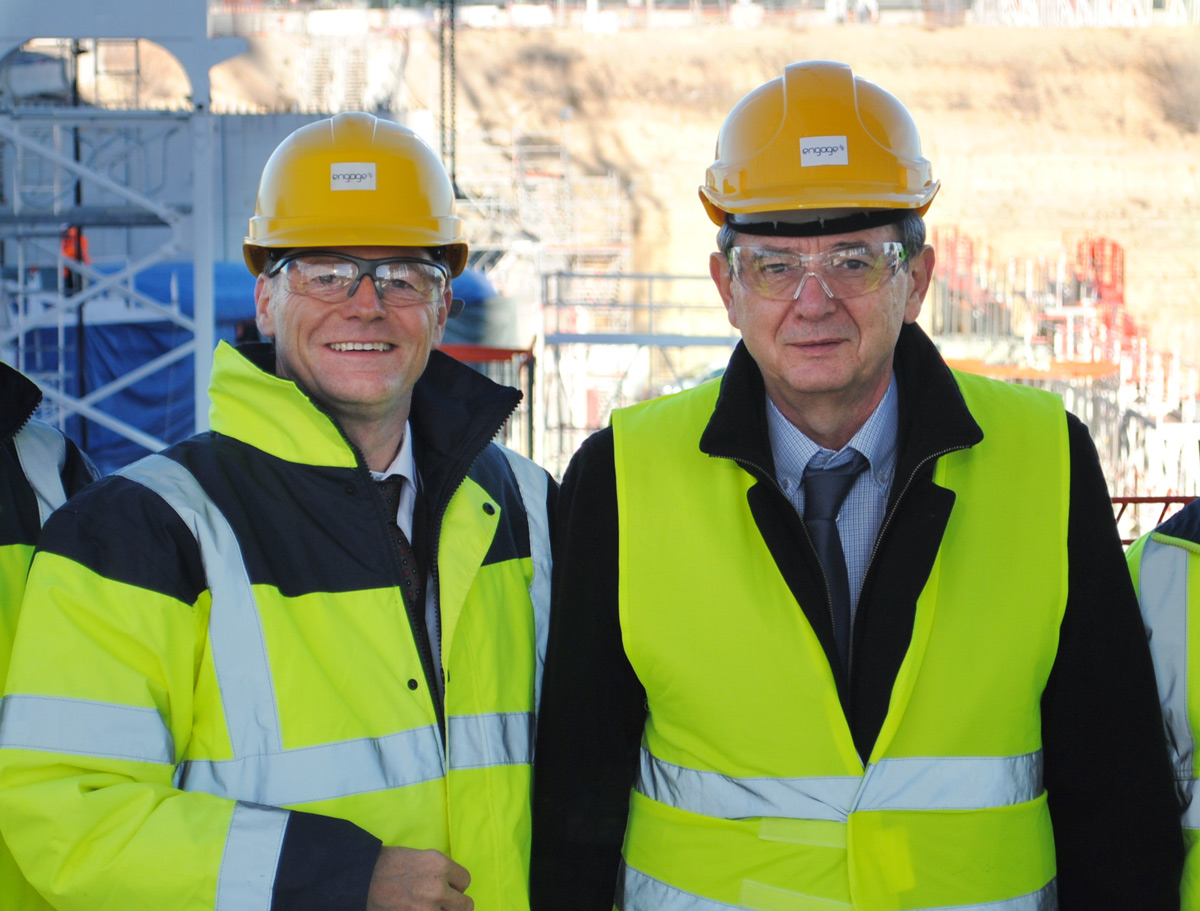European Parliament Rapporteur Marian-Jean Marinescu Witnesses First-Hand ITER Progress


On 5 February 2016, Marian-Jean Marinescu, Budgetary Control Committee Rapporteur for Fusion for Energy (F4E) and European Joint Undertakings made his first visit to the Cadarache site where the world’s greatest energy research experiment is under construction.
F4E Director Johannes Schwemmer welcomed MEP Marinescu and accompanied him on a tour of the different buildings being constructed by F4E, with key stops at the Tokamak Complex and the Poloidal Field Coil Assembly Building where a production line for some of the world’s largest ever superconducting magnets is being set up. Along the way he had the opportunity to meet several of F4E project managers and hear directly about the challenges of working on such a technically demanding international project.
MEP Marinescu, an aerospace engineer himself, took the opportunity to find out more about the way in which the project is being managed and how costs are controlled: “With the implementation of the ITER and F4E Action Plans, I am pleased to see that project management is being put at the heart of the ITER project”. Bernard Bigot, the Director General of the ITER Organization (IO) and members of his senior management team provided further explanations on the overall ITER project progress.
The Romanian MEP took the time to meet and interact with a number of staff members from the ITER IO, F4E and the industrial contractors. He also did not miss the opportunity to shake hands with many of his compatriots who were eager to share their experiences on working to make fusion energy a reality. Mr Marinescu concluded his visit with a “virtual” tour through a 3D computer model that shows the complexity of assembling the million components that make up the ITER experiment.
MEP Marinescu is the Rapporteur of the European Parliament Budgetary Control Committee which recommends to the European Parliament the granting of the annual budgetary discharge procedure.
The Budgetary Control Committee is expected to make its recommendation for the 2014 budget in time for a European Parliament decision in April 2016. The visit allowed for a better understanding of the current status of the ITER project, as well as of the progress of the different actions which are being implemented by ITER IO and F4E to put the project back on track.
The ‘discharge’ is the final approval of the EU budget for a given year following the audit and finalisation of the annual accounts. It is granted by the European Parliament on a recommendation from the Council. The ‘discharge’ means, in simple terms, the approval of the way the Joint Undertaking implemented the budget in that financial year.
